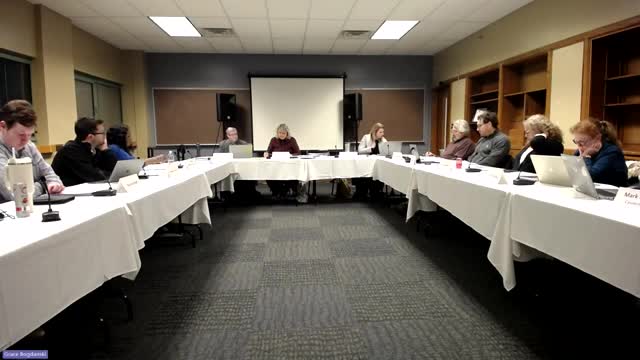Committee debates city-manager residency, succession planning and role of a deputy title
Get AI-powered insights, summaries, and transcripts
Subscribe
Summary
Committee members discussed requiring the city manager to live within 25 miles of the city boundary, drafting a local succession list of department heads to act if the manager is unavailable, and whether a formal deputy-city-manager title should require Council approval.
The Charter Review Committee spent substantial time on Feb. 6 discussing language that governs the city manager’s residency requirement, temporary unavailability and succession planning.
Why it matters Committee members said clear succession language matters for continuity in cases of sudden unavailability or emergencies so someone on-site can make time‑sensitive operational decisions until Council can meet and act.
What was discussed - Residency language (public act reference): The committee referenced Michigan Public Act 212 of 1999 when discussing a clause that requires the city manager to live within 25 miles of the city boundary; members asked staff to preserve the statutory cross-reference. - Acting manager vs. deputy title: Members debated two approaches: (a) require the city manager to submit a prioritized list of existing administrative officers or department heads who would serve as acting city manager when the manager is temporarily unavailable; or (b) allow the manager to create a formal deputy‑city‑manager post that would be subject to Council approval and potentially carry budget or contract implications. - Temporary unavailability wording: The committee preferred wording that triggers acting authority when the city manager is “temporarily unavailable” rather than merely “absent from the city,” to reflect remote work and modern communications. - Priority list and Council approval: Several members favored a practical middle path: the manager provides Council a prioritized list of administrators (1, 2, 3…) who would serve as acting city manager if the manager is unavailable; Council would review/acknowledge that list in advance so an immediate acting designee is clear during an emergency.
Outcome Committee members reached a working consensus to remove mandatory “deputy city manager” language and instead require the manager to provide Council with a prioritized list of existing administrative officers or department heads who may serve as acting city manager during periods of temporary unavailability. The committee directed staff to draft precise charter text reflecting that approach (priority list; Council acknowledgement) and to place that language in the packet to be forwarded to Council.
Ending Committee members asked staff to prepare draft language that captures the prioritized list approach and to put the draft before the committee for a future meeting; staff flagged implementation steps (notice in Council packets and an editorial review by the city attorney).
